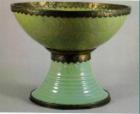| Legole.Com Discover china. Explore the beauty and wonder of the land, people, and culture of China. |
 |
|
|
 |
| |
 Despite the act that the Mongolian emperors sought to emulate much of the Chinese style of rule they continued to be regarded by the Chinese as unwelcome invaders and this may well have been the cause of their eventual failure as rulers. There is evidence of the declining ability of the Mongolian rulers to exercise control. The court was beset by intrigue which undermined the administration. Toghon Temur, the last Yuan ruler relied heavily on his councilors. When he dismissed the Mongolian Toghto his action precipitated the disintegration of the government. Despite the act that the Mongolian emperors sought to emulate much of the Chinese style of rule they continued to be regarded by the Chinese as unwelcome invaders and this may well have been the cause of their eventual failure as rulers. There is evidence of the declining ability of the Mongolian rulers to exercise control. The court was beset by intrigue which undermined the administration. Toghon Temur, the last Yuan ruler relied heavily on his councilors. When he dismissed the Mongolian Toghto his action precipitated the disintegration of the government.
The loss of military advantage brought about by the deterioration of the military system through a lack of funding and equipment plus the fact that the military leaders had to turn to agriculture for their survival contributed to the fall of the Yuan. The garrison system set up to control local disturbances fell into disarray. Rebellion became increasingly frequent from the 1330's. The most important of these was to become known as the Red Turban Rebellion. Based upon a religious sect, these rebels were to rise up in several places in the Huaihe River region and elsewhere. The massive recruitment of labor to re-route the Yellow River was the cause of unrest and while some uprisings were led by religious fervor others were class led as the efforts were directed against landlords and officials. The Yuan allowed these people to raise peasant armies to quell rebellion but a second round of revolt that proved more successful was led by Zhu Yuanzhang, who in 1368 was to become the first Ming emperor.
In many respects the Mongolian occupation of China is seen as unproductive but there were important developments in literature and drama. The other important feature concerns the military establishment. Prior to the Yuan period the concept of conscription was tantamount. This could only work efficiently under a strong and effective central government. The Tang abandoned this idea and relied upon mercenaries, a practice followed also by the Song. The Yuan instituted a system of hereditary military families and this was to be continued by the Ming (1368 - 1644) and Qing (1644 - 1911). The practice played a part in ensuring dynastic strength but it also encouraged despotism. Finally, the legal system left a legacy. One notable aspect was the imposition of a responsibility upon a wrong doer to provide financial support for his victim in addition to any penalty.
|
|
|
 |
|
|
 |
|
